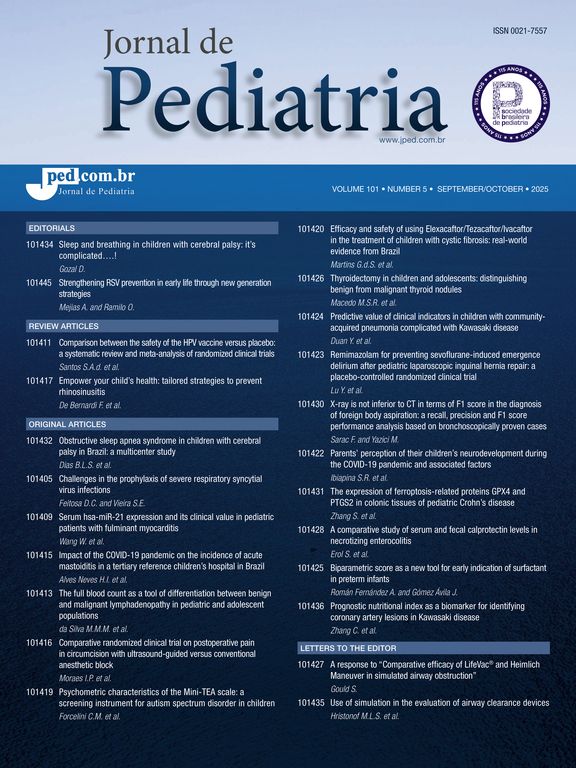To verify the influence of playful activities during the preoperative period on the anxiety of children participating in the therapeutic recreation project conducted at the outpatient surgical center of Hospital de Clínicas de Porto Alegre (HCPA), Porto Alegre, Brazil.
MethodsThe modified Ÿale Preoperative Anxiety Scale (mŸPAS) was administered to 50 children between 5 and 12 years of age undergoing medical procedures at the outpatient surgical center. The children were divided in two groups: recreation group (individuals who participated in playful interventions in the recreation room) and control group (individuals who did not participate in playful interventions). Anxiety was measured using the mŸPAS at two different moments: soon after the individuals arrived at the outpatient surgical center (minute 0) and 15 minutes after the first measurement.
ResultsThe results showed that soon after arriving at the outpatient surgical center, the patients did not have significant differences regarding anxiety, showing high values. However, after 15 minutes waiting or undergoing intervention, the children in the recreation group had reduced anxiety levels and those in the control group remained anxious.
ConclusionsDuring the preoperative period, children who participate in playful activities in the recreation room have their anxiety reduced in comparison with those that only stay in the preoperative holding area for at least 15 minutes.
Verificar a influência das atividades lúdicas realizadas durante o pré-operatório sobre a ansiedade de crianças participantes do projeto de recreação terapêutica desenvolvido no Centro Cirúrgico Ambulatorial (CCA) do Hospital de Clínicas de Porto Alegre, Porto Alegre (RS).
MétodosPara a realização do estudo, foi aplicada a Escala de Ansiedade Pré-operatória de Ÿale modificada (modified Ÿale Preoperative Anxiety Scale, mŸPAS) em 50 crianças de 5 a 12 anos submetidas a procedimentos médicos no CCA. As crianças foram divididas em dois grupos: grupo recreação (participou de intervenções lúdicas na sala de recreação) e grupo controle (não participou de intervenções lúdicas). A ansiedade foi mensurada através da escala mŸPAS em dois momentos: logo que os indivíduos chegaram ao CCA (minuto 0) e 15 minutos após a primeira medida.
ResultadosOs resultados mostraram que, logo ao entrar no CCA, os pacientes não apresentaram diferenças significativas com relação à ansiedade, sendo os valores elevados. No entanto, após 15 minutos de espera ou intervenção, as crianças do grupo recreação diminuíram a ansiedade, e as do grupo controle permaneceram ansiosas.
ConclusõesDurante o período pré-operatório, crianças que participam de atividades lúdicas na sala de recreação diminuem a sua ansiedade em comparação àquelas que somente ficam na sala de espera pelo menos durante 15 minutos.








